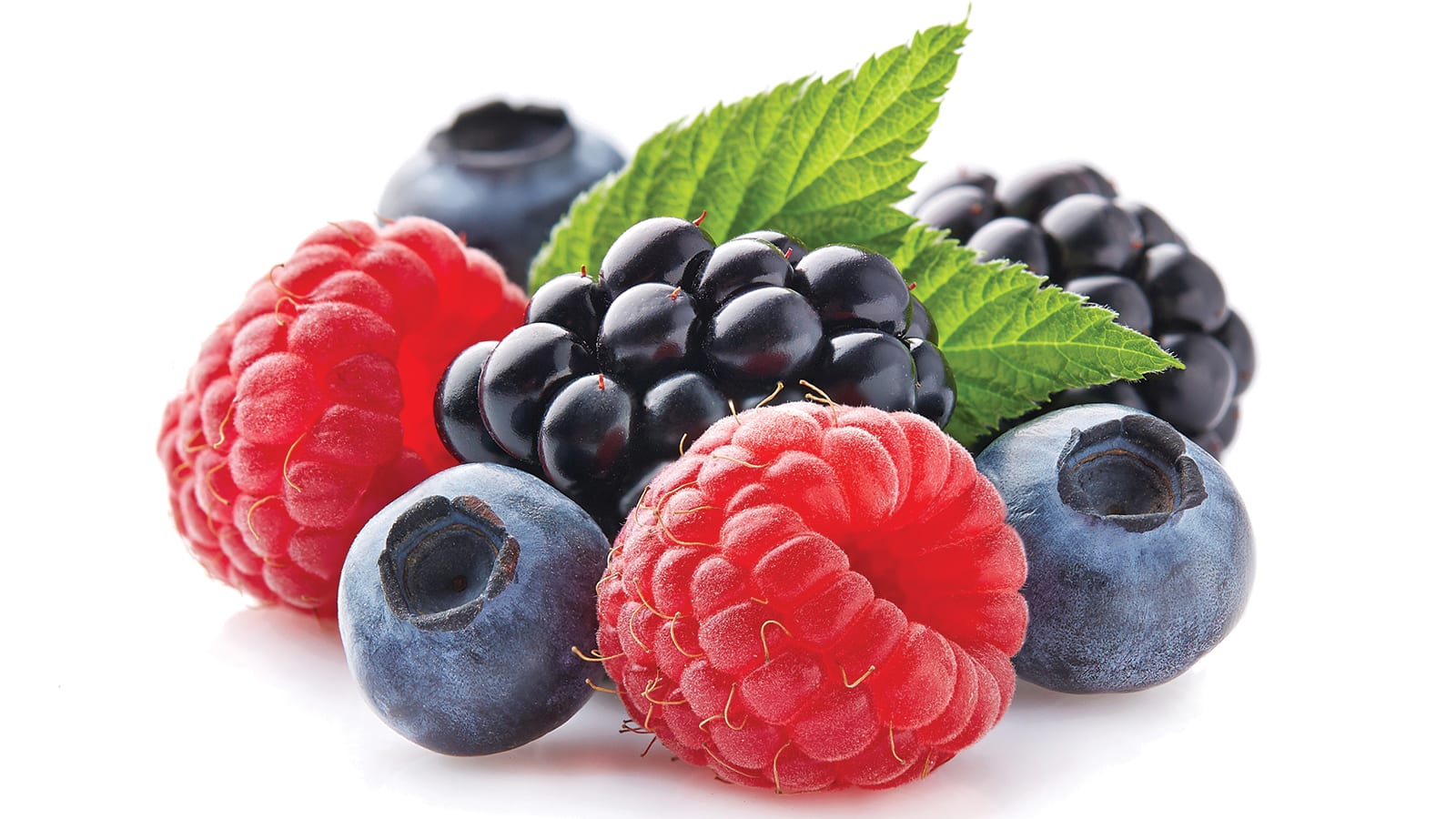Nutrition Picks – Northwest berries: Prolific protectors
by Nick Rose, M.S., PCC Nutrition Educator
This article was originally published in June 2018

Washington state produces more blueberries and red raspberries than any other state in the country. Then there are all the wild (and invasive!) blackberries growing across the Northwest. Our environment seems to want us to eat more berries!
Berries offer an impressive nutritional profile, including high levels of potassium, fiber and the trace minerals copper and manganese. The wide variety of antioxidants in berries also makes them one of “the most beneficial fruits to eat for cancer prevention,” according to the American Institute for Cancer Research (AICR). Washington state has the highest incidence of cancer on the West Coast, so we are fortunate to have these prolific protectors thriving in our gardens and local markets.
Strawberries
Strawberries are the first local berry of the season, offering a welcome burst of color. Just 1 cup provides your entire daily requirement for vitamin C and just 50 calories — an incredibly nutrient-dense fruit.
Those tiny strawberry seeds also supply some beneficial omega-3 fatty acids. Washington State University researchers have demonstrated that organic strawberries have higher levels of vitamin C, taste better, and last longer than non-organic strawberries.
We especially love Rent’s Due organic strawberries, grown by Mike Shriver in Snohomish County and sold in compostable boxes, plastic-free. We expect them mid-month or earlier.
Raspberries
Raspberries (and strawberries) are a good source of pectin — a soluble fiber that lowers cholesterol and supports digestive health and blood sugar regulation.
Raspberries also are great sources of vitamin C, copper, manganese, as well as dozens of phytonutrients with anti-inflammatory and antioxidant properties. According to the AICR, the ellagic acid in raspberries (and blueberries) “may help prevent cancer formation,” so we’re blessed to have an abundance of these delicate berries in Washington. Whatcom County produces more red raspberries than any other county in the U.S.
Look for organic, local raspberries mid-June from Sky Harvest Produce in Skagit County.
Blueberries
All berries are excellent sources of antioxidants, but blueberries stand out as having more antioxidants per serving than most other fruits. The dazzling blue and purple colors found in blueberries translate into equally impressive health benefits, protecting our bodies from a range of chronic diseases.
A growing body of research finds blueberries are one of the most protective foods for brain health, improving nervous system function, and preventing cognitive decline associated with aging. Blueberries also have a low glycemic index and the ability to inhibit angiogenesis (development of new blood vessels that fuel cancer cells), helping to explain their cancer fighting reputation.
Mark LaPierre’s organic blueberries from Yakima County, Washington are the best-tasting, plumpest blueberries we ever have experienced. We hope to see them in stores by the end of June.
Berry tips
Rinse berries just before eating because berries will spoil more quickly after rinsing. Consume fresh berries within 2 to 3 days of purchase, unless you freeze them.
To freeze berries, rinse gently then allow to dry completely. Place on a cookie sheet and place directly in the freezer (this prevents clumping together). Once frozen, put them in a heavy freezer bag and keep frozen for up to a year.
